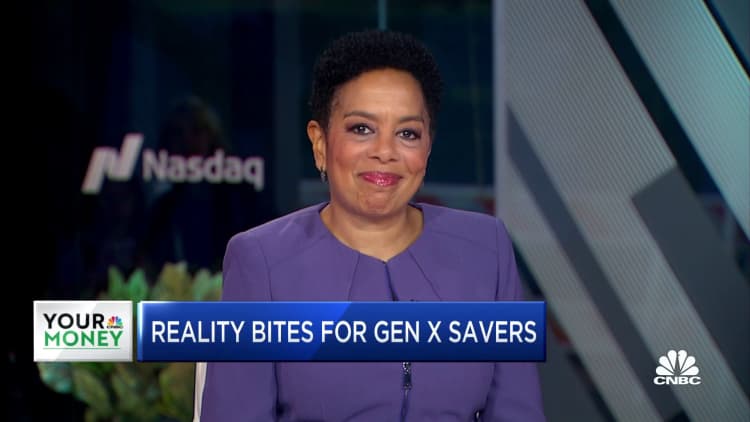
Daniel Gonzalez | Moment | Getty Images
Working longer is among the best ways to ensure you don’t outlive your retirement savings. The problem is, you can’t count on it as a strategy.
When it comes to retirement age, there’s a big gap in expectations versus reality. Americans generally retire earlier than planned — often due to factors beyond their control, such as poor health or job loss, research shows.
In 2022, the average expected retirement age was 66, according to a Gallup poll. But the actual retirement age was 62, on average. While the averages have varied somewhat over the years, there has been a consistent gap of about five years between expected and actual retirement ages since 2002, Gallup said.
Why retiring later can have a ‘dramatic’ impact
Delaying retirement by just a few years can have a “dramatic” positive financial effect, Blanchett said.
Such people continue to get a regular paycheck, so don’t have to live off their savings. Meanwhile, they have extra time to save and for their assets to (hopefully) grow. Further, they can likely delay claiming Social Security benefits, guaranteeing a higher monthly payout for the rest of their lives.
But retiring earlier than anticipated can have the opposite impact, experts said.
Largely, this disproportionately affects people who plan to retire in their early 60s or later, according to Blanchett’s research.
Those who target a retirement age past 61 end up making it about half as far as expected, he found. For example, someone who aims to retire at 69 would actually retire around age 65.
Yet, countervailing trends are pushing workers to retire later.
Social Security’s full retirement age has gradually been pushed back, to as late as age 67 for anyone born in 1960 or after. Americans are living longer, meaning they need to amass more savings to fund their lifestyles in old age.
The shift from pensions to 401(k)-type plans is also a factor, said Richard Johnson, senior fellow at the Urban Institute. Pensions generally offer an incentive to start collecting benefits at a certain age, whereas no such trigger exists in 401(k) plans, he said.
Early retirement is largely due to unforeseen events
Momo Productions | Digitalvision | Getty Images
One-third of workers expect to retire at age 70 or later — or not at all, according to EBRI. But only 6% of retirees said they did retire at 70.
In 2023, 35% of people who said they retired earlier than planned did so because of a hardship like a health problem or disability, according to EBRI. Another 31% did so due to changes at their company.
“The key is, these are things you aren’t going to be able to control,” Blanchett said.
Of course, a large share — 35% — also said they could afford to retire early, EBRI found. And almost half of retirees said they were able to stop working at about the time they planned.
Job loss is ‘really consequential’ for older adults
More than half, 56%, of full-time workers in their early 50s get pushed out of their jobs (due to circumstances like a layoff) before they’re ready to retire, according to a 2018 paper published by the Urban Institute.
“Job loss at older ages is really consequential,” said Johnson, a report co-author. He attributes much of that workplace dynamic to ageism.
Just 10% who suffered an involuntary job separation in their early 50s ever earn as much per week after their separation as before it, the Urban Institute paper said. In other words, 90% earn less — “often substantially less,” Johnson said.
Many may not be able to find a new job altogether.

Johnson’s research shows that in the aftermath of the Great Recession (from 2008 through 2012), workers 50 to 61 years old who lost a job were 20% less likely to be reemployed than workers in their 20s and early 30s. Those age 62 and older were 50% less likely to have a new job.
“Working longer is in theory a good option to shore up your retirement savings,” Johnson said. “But when workers are preparing for retirement, they shouldn’t bet to be able to stay in their jobs for as long as they want.”
Today’s strong labor market means it may be easier for older workers to find a new job, Johnson said. However, it’s unclear how long that strength will last.
It may also be easier for many retirees today, especially those who can work from home, to find part-time gigs to help blunt the financial impact of earlier-than-expected retirement from full-time employment, experts said.


